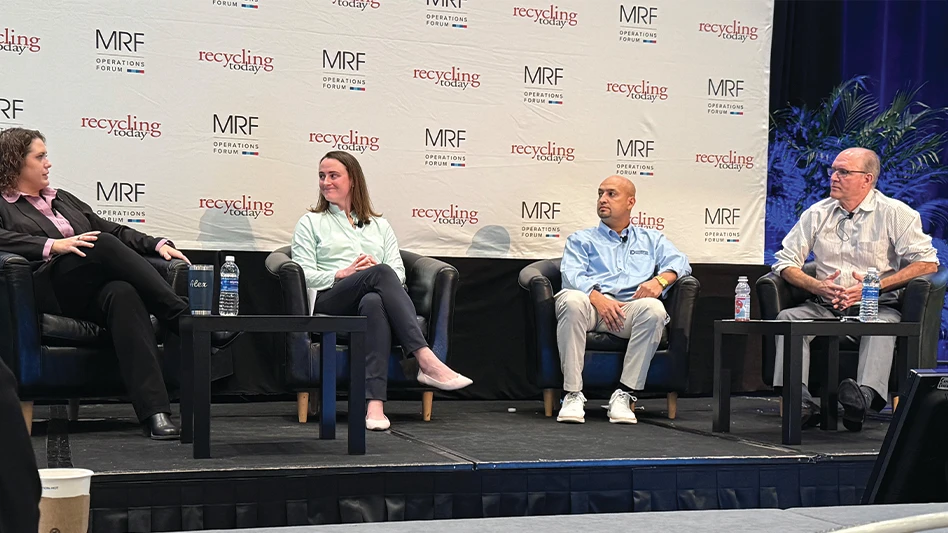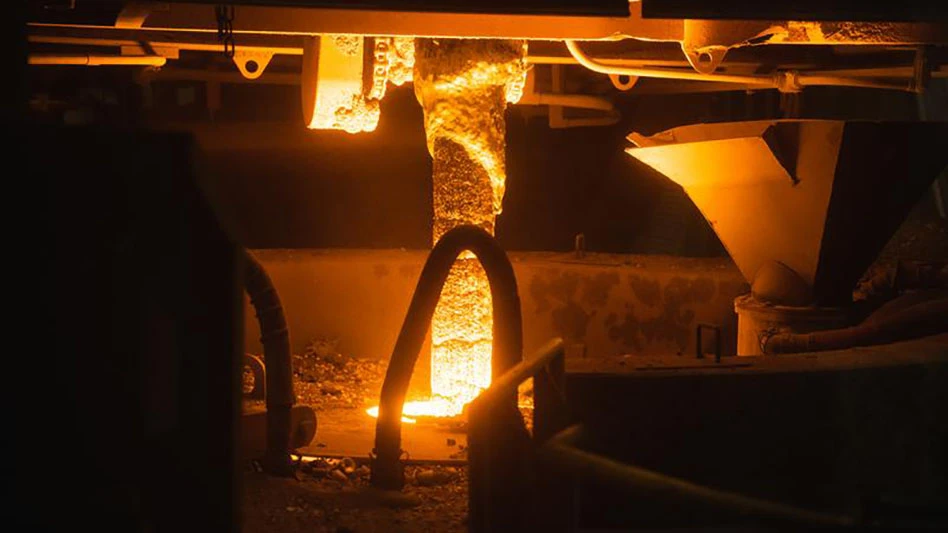
Photo courtesy of Ecodek
A new collaborative demonstration initiative that is part of a series of supply chain projects funded by the Welsh government and led by WRAP Cymru will address how plastic materials with no existing end-market can be turned into composites that can be used in building applications. The projects, led by U.K.-based Nextek, aim to drive market confidence in using postconsumer recycled materials in products by demonstrating the economic and environmental benefits of doing so.
Scaling up an earlier project that focused on a range of hard-to-recycle materials, such as potato chip packs and plastic food pouches that were recycled into outdoor furniture, this new initiative will focus on complex polymeric materials taken from cars, large domestic appliances and postconsumer packaging that includes laminated plastic-coated paper board, single-use cups and films, Nextek says.
The multiparticipant project includes Fiberight, which has developed a process to recover materials from mixed waste, including paper and currently unrecycled film, and MBA Polymers, which recycles plastics recovered from ASR (automotive shredder residue) and end-of-life durable goods, producing approximately 20,000 metric tons of high-quality single-polymer compounds per year. During the process, MBA also generates a total of 9,700 metric tons of mixed material that currently goes to energy recovery or landfill. The third organization is the U.K.’s leading composite decking manufacturer, Ecodek, which will extrude Nextek’s resulting composites into building materials.
Nextek says it will use its expertise in compounding and recycling of paper-plastic composites and that the resulting compound can be used for numerous high-performance product applications that aim to reduce reliance on imported timber while also reducing the need to landfill these materials or send use them as feedstock for waste-to-energy applications.
Latest from Recycling Today
- AF&PA releases 2023 paper recycling rate, unveils new methodology
- ARA names new president
- Aurubis invests in Lünen, Germany, site
- ILA, USMX negotiations break down
- Van Dyk hires plastics industry vet to expand footprint in PRF sector
- Li-Cycle closes $475M loan with DOE
- Report highlights consumer knowledge gaps in lithium battery recycling
- AMP names CEO





